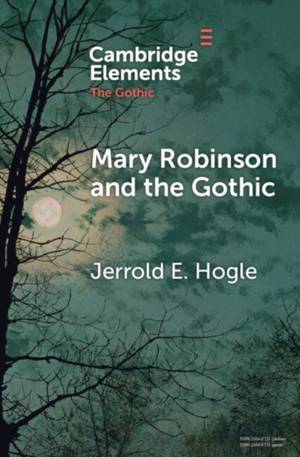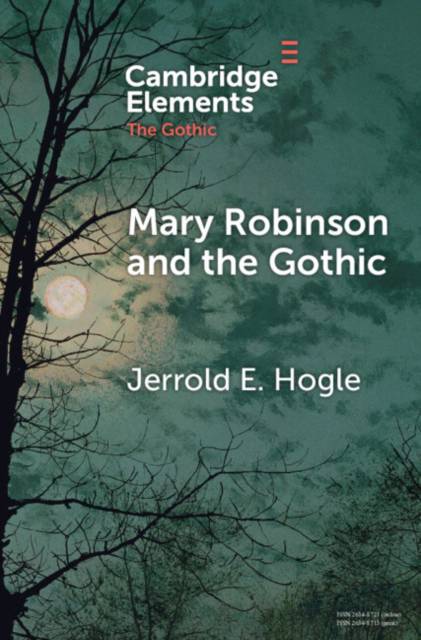
Door een staking bij bpost kan je online bestelling op dit moment iets langer onderweg zijn dan voorzien. Dringend iets nodig? Onze winkels ontvangen jou met open armen!
- Afhalen na 1 uur in een winkel met voorraad
- Gratis thuislevering in België vanaf € 30
- Ruim aanbod met 7 miljoen producten
Door een staking bij bpost kan je online bestelling op dit moment iets langer onderweg zijn dan voorzien. Dringend iets nodig? Onze winkels ontvangen jou met open armen!
- Afhalen na 1 uur in een winkel met voorraad
- Gratis thuislevering in België vanaf € 30
- Ruim aanbod met 7 miljoen producten
Zoeken
€ 31,95
+ 63 punten
Omschrijving
Celebrated as an actress on the London stage (1776-80) and notorious as the mistress of the Prince of Wales (1779-80), Mary Darby Robinson had to write to support herself from the mid-1780s until her death in 1800. She mastered a wide range of styles, published prolifically, and became the poetry editor of the Morning Post. As her writing developed across the 1790s, she increasingly used the motifs of Gothic fiction and drama descended from Horace Walpole's Castle of Otranto (1764). These came to pervade her late novels and poems so much that she even wrote her autobiography as a Gothic romance. She also deployed them to critique the ideologies of male dominance and the forms of writing in which they appeared. This progression culminated in her final collection of verses, Lyrical Tales (1800), where she Gothically exposes the conflicted underpinnings in the now-famous Lyrical Ballads (1798) by Wordsworth and Coleridge.
Specificaties
Betrokkenen
- Auteur(s):
- Uitgeverij:
Inhoud
- Aantal bladzijden:
- 75
- Taal:
- Engels
- Reeks:
Eigenschappen
- Productcode (EAN):
- 9781009160872
- Verschijningsdatum:
- 27/04/2023
- Uitvoering:
- Paperback
- Formaat:
- Trade paperback (VS)
- Afmetingen:
- 152 mm x 229 mm
- Gewicht:
- 117 g

Alleen bij Standaard Boekhandel
+ 63 punten op je klantenkaart van Standaard Boekhandel
Beoordelingen
We publiceren alleen reviews die voldoen aan de voorwaarden voor reviews. Bekijk onze voorwaarden voor reviews.











